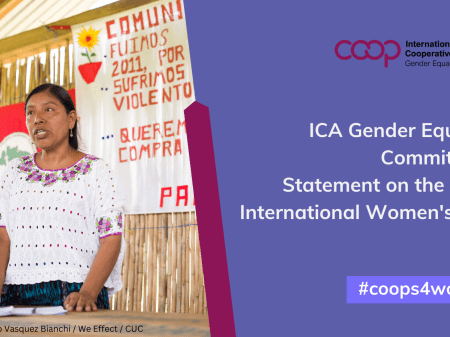If an argument can be convincingly made for why co-operatives are better for the long-term interests of the world, and if the public better understands what a co-operative is, it would stand to reason that momentum would gather for growth. But this is more likely to occur, and in some cases can only occur if existing barriers to growth are removed. One aspect of this is the process by which co-operative enterprises are started up within different jurisdictions, and this process is generally part of national law.
One of the strongest arguments put forward to support the growth and development of co-operatives is that the business model should be on a level playing field compared with other types of business.
At the launch of the International Year of Co-operatives at the United Nations, New York, in October 2011, Dame Pauline Green, Alliance President, told representatives from around the world: “Member-owned co-operatives are a serious business model – with scale. And so, co-operatives are asking that the specific and unique legal and financial framework of a co-operative is fully acknowledged and recognised in public policy and regulation.” Read more.
The Blueprint describes a range of ways, which it calls "possible or indicative actions" which have already been suggested in order to prompt discussion and action:
- Assistance can be provided to registrars and regulators through
- the creation of an International Network for registrars and regulators
- the development of Guidelines on how to apply the Principles
- Assistance can be provided to national parliamentarians, legislators and policy-makers through the comparative study of the way laws apply to co-operatives in different jurisdiction, for example
- In 2009 the Co-operatives of the Americas published a document setting out a Framework Law for Latin American countries, updating a previous version dating back to 1988. The Framework Law is not intended to be a model to copy by the lawmakers of other countries. Its purpose is to provide guidance on key aspects of co-operative legislation as derived from jurisprudence, academic studies, and comparative law.
- A further illustration is a recent initiative to establish a Study Group on European Co-operative Law (SGECOL ), which will be looking at Principles of European Co-operative Law (PECOL ) as its first research project. SGECOL’s general objective is to conduct comparative research on co-operative law in Europe, thus promoting increased awareness and understanding of co-operative law within the legal, academic and governmental communities at national, European and international level. SGECOL intends to achieve this objective through various research initiatives on co-operative law, beginning with the drafting of PECOL.
- Integrate the co-operative agenda into global development institutions, such as the World Bank, and with intergovernmental policy-setting bodies, such as G8 and G20
- Develop the capacity to respond to co-operative opportunities created by global and regional political events and changes
- Evidence could be published for the social and public benefit of co-operatives. This evidence and a body of literature should be built up to support arguments for the appropriate treatment of co-operatives in law in different jurisdictions and different stages of economic development
- As referred to above under Identity, there is a need to establish an “irreducible core” of what it means to be a co-operative. This is clearly important as a basis for securing different treatment of co-operatives within national legal systems, because there needs to be a robust connection between the evidence of social and public benefit and the minimum criteria for being treated as a co-operative. This will be essential where, for example, different fiscal or regulatory treatment is afforded to co-operatives, because otherwise there will be false claims to entitlement
- A mechanism or tool should be developed to evaluate national legal frameworks and the extent to which they are enabling and supportive of co-operatives. A league table of jurisdictions could be compiled to highlight the stronger and weaker ones, which would be a good way to highlight the poorer performers and provide an opportunity to engage with them in political advocacy based on demonstrable factors
- Establish a co-operative knowledge databank to measure and demonstrate impact and facilitate knowledge transfer.




